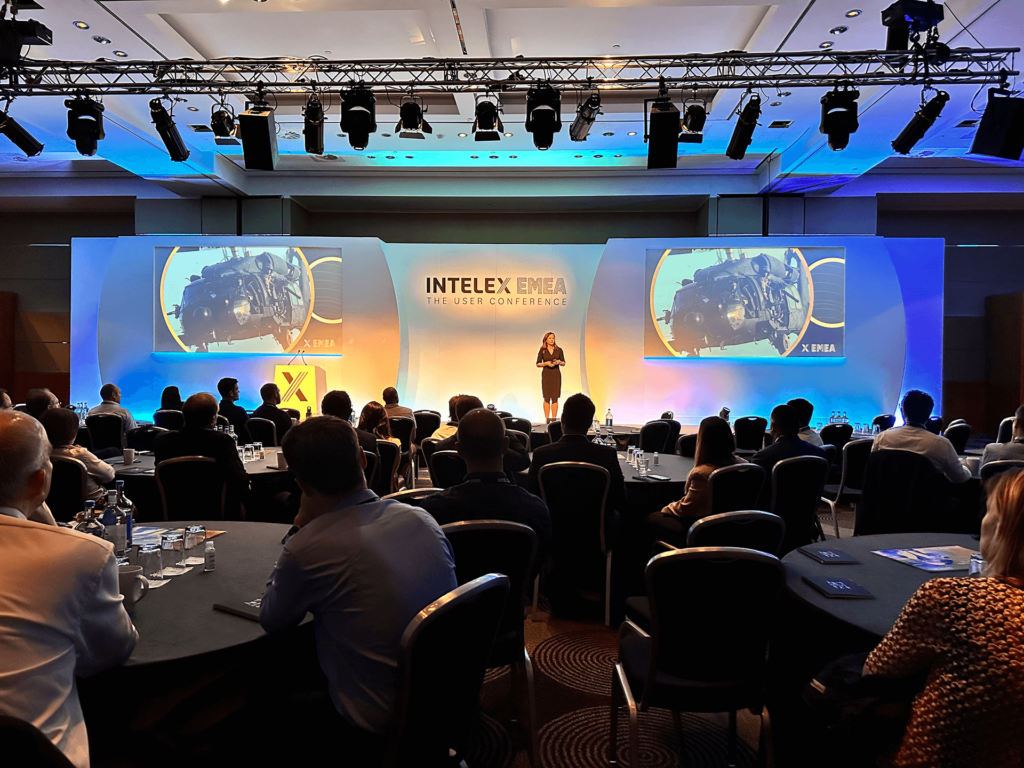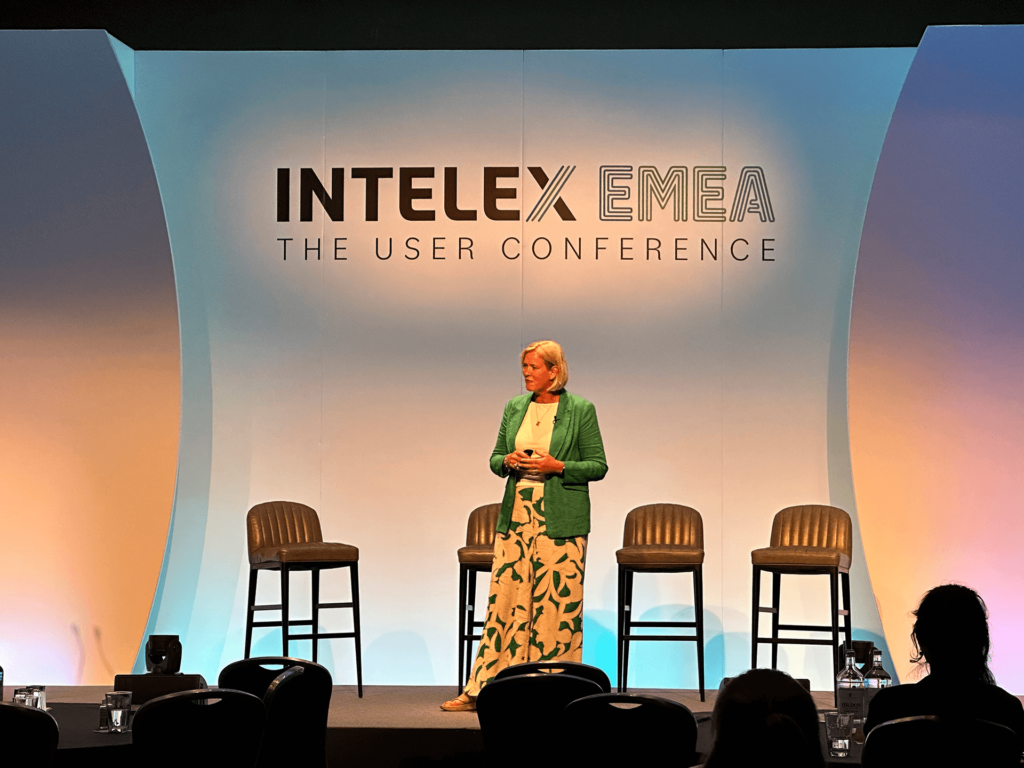Intelex EMEA User Conference – Day 1 Summary
June 14, 2023
Big ideas, engaging discussions and deep customer insights: that was the agenda for the first day of the Intelex EMEA User Conference in London. With a packed house of customers and partners, we dug into the big topics like safety culture, the increasing demands of ESG compliance and the role of cutting-edge technology in making the world a safer and more sustainable place. Here are three important themes that came out of Day 1.

We all love big data, but it’s not easy
Data might be the most commonly used word in the world today, or maybe it just seems that way. Everyone is talking about the power of data to identify trends, produce leading indicators or reveal hidden insights. Data can definitely do all that, but it’s important to keep in mind that data management is not easy. Despite what it might look like, you can’t simply express your desire to become data driven and have that capability appear miraculously the next day.
Collecting, managing and analyzing data requires significant resources and expertise if you want to get the insights you’re looking for. Giving frontline workers the opportunity to log incidents and observations is a great idea, but only if you have the resources to manage the data you receive. When every observation is a data point, that can add up to a lot of data in a very short period of time, and if you don’t have an established approach to managing it, the only thing you’ll end up with is a swamp of outdated, invalid data. Further, if you’re still using spreadsheets or, even worse, paper to manage your incidents, the data movement is quickly leaving you behind.
ESG Compliance is a very big deal
Environment, Social and Governance (ESG) has quickly become one of the most important concerns for every business around the globe. The new CSRD (Corporate Sustainability Reporting Directive) in the EU includes a number of mandatory reporting elements that will touch not only thousands of businesses in the EU, but many more businesses from around the world that have operations in the EU. CSRD expands on the previous NFRD (Non-Financial Reporting Directive) from 2014 by including a mandatory framework for reporting and an obligation to conduct a double materiality assessment, which will put increased pressure on many organizations to manage their ESG data in a way that facilitates effective reporting.
With the inclusion of Scope 3 emissions data into some reporting requirements, the work of managing ESG data gets even more difficult. One organization’s Scope 1 data is someone else’s Scope 3 data further down the line, which means one source of data needs to serve two quite different reporting functions.

ESG regulations are likely to become stricter, not more lenient, over time, which means now is the time to come to terms with how to manage and report ESG data. Today’s announcement of the Intelex Corporate Reporting for ESG product experience provides the help that organizations need to manage such increasingly difficult requirements. Visit our Intelex Blog on this topic to learn more.
Culture is critical for creating a safer and more sustainable world
There is no question that data, technology and digital processes are some of the most important elements in making the workplace safer and creating a more sustainable world. However, at its core, safety is about people, and the culture in which people work—the attitudes and ideas that both shape and embody the way an organization supports safety—is the foundation on which every other safety initiative rests. As we heard several times today, “the one who is wise, saves lives,” driving home the idea that safety is about more than compliance and performance improvement: it’s about creating an environment in which every worker throughout the organization feels a sense of ownership and leadership within the safety culture they support and that supports them. When every worker feels empowered to speak their mind about the work environment, when they feel that they are valued members of the organization, when they feel heard by leadership, when the idea of the safety function as little more than a cost center disappears and we acknowledge safety as a fundamental component of an organization, then we will have established safety cultures that make the lives of workers the highest priority.

Mandy Hickson’s engaging keynote provided a compelling, and frequently very funny, look at themes like the importance of teamwork and camaraderie in a culture that establishes trust and pushes everyone to get the best out of each other. As one of the first female pilots of the Tornado GR4 in the Royal Air Force (RAF), Mandy learned firsthand the critical importance of establishing a culture in which leaders and team members listened to each other, motivated one another and solved problems in ways that elevated the entire team to success. Mandy’s message reminded us that from the manufacturing floor to the battlefield, establishing a culture of trust between team members of all levels is one of the most important things you can do to ensure everyone performs to the best of their ability to get the job done and get everyone home safely.
Check back tomorrow for a summary of Day 2 from the Intelex EMEA User Conference.






